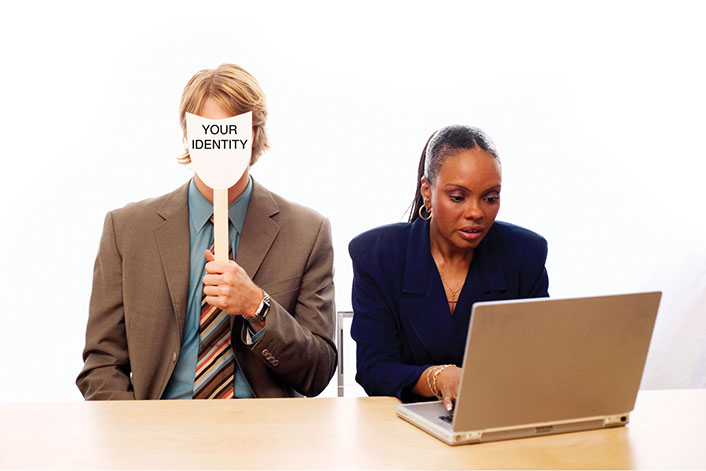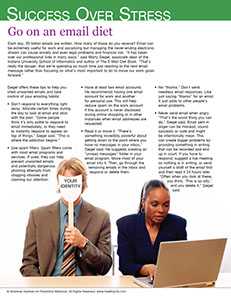SYMPTOM CHECKER
CONDITIONS
Male
Female
Child
Arm, Hand & Shoulder Concerns
Legs & Feet Concerns
Dental & Mouth Concerns
Ear & Nose
Eye Conditions
Head Conditions
Arm, Hand & Shoulder Concerns
Legs & Feet Concerns
Front
Back
Arm, Hand & Shoulder Concerns
Dental & Mouth Concerns
Ear & Nose
Eye Conditions
Head Conditions
Arm, Hand & Shoulder Concerns
Dental & Mouth Concerns
Ear & Nose
Eye Conditions
Head Conditions
Front
Back
Arm, Hand & Shoulder Concerns
Neck Links
Head & Neck Concerns
Arm, Hand & Shoulder Concerns
Neck Links
Head & Neck Concerns
Front
Back
Online Clinic
Wise Healthcare
Go on an email diet

Print on Demand
Each day, 55 billion emails are written. How many of those do you receive? Email can be extremely useful for work and socializing but managing the never-ending electronic stream can cause anxiety and even legal problems and financial risk. “It has taken over our professional lives in many ways,” said Marty Siegel, associate dean of the Indiana University School of Informatics and author of The E-Mail Diet Book. “That’s really the danger, that we’re spending so much time just reacting to the next email message rather than focusing on what’s most important to do to move our work goals forward.”
Siegel offers these tips to help you shed unwanted emails and take control of your emailing habits:
• Don’t respond to everything right away. Allocate certain times during the day to look at email and stick with the plan. “Some people think it’s only polite to respond to email immediately, or they need to instantly respond to appear on top of things,” Siegel said. “This is where the addiction begins.”
• Use spam filters. Spam filters come with most email programs and services. If used, they can help prevent unwanted emails and potentially dangerous phishing attempts from clogging inboxes and claiming our attention.
• Have at least two email accounts. He recommends having one email account for work and another for personal use. This will help reduce spam on the work account if this account is never disclosed during online shopping or in other instances when email addresses are requested.
• Read it or move it. “There’s something incredibly powerful about getting down to the point where you have no messages in your inbox,” Siegel said. He suggests creating an “unread messages” folder in your email program. Move most of your email into it. Then, go through the remaining emails in the inbox and respond or delete them.
• No “thanks.” Don’t send needless email responses. Like just saying “thanks” for an email. It just adds to other people’s email problems.
• Never send email when angry. “That’s the worst thing you can do,” Siegel said. Email sent in anger can be misread, sound sarcastic or rude and might be intentionally mean. This can create bigger problems by providing something in writing that can be recorded and end up in court. If you have to respond, suggest a live meeting so nothing is in writing, or send yourself a draft of the email first and then read it 24 hours later. “Often when you look at these, you think, ‘This is so silly,’ and you delete it,” Siegel said.
This website is not meant to substitute for expert medical advice or treatment. Follow your doctor’s or health care provider’s advice if it differs from what is given in this guide.
The American Institute for Preventive Medicine (AIPM) is not responsible for the availability or content of external sites, nor does AIPM endorse them. Also, it is the responsibility of the user to examine the copyright and licensing restrictions of external pages and to secure all necessary permission.
The content on this website is proprietary. You may not modify, copy, reproduce, republish, upload, post, transmit, or distribute, in any manner, the material on the website without the written permission of AIPM.
2021 © American Institute for Preventive Medicine - All Rights Reserved. Disclaimer | www.HealthyLife.com
















































